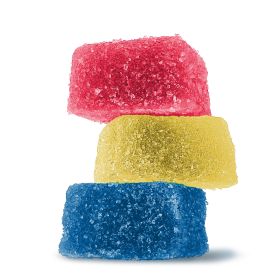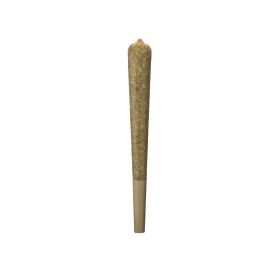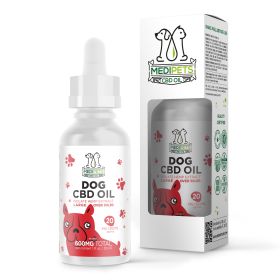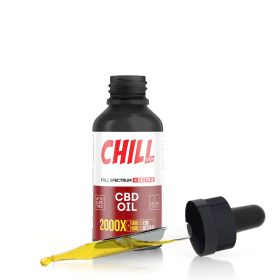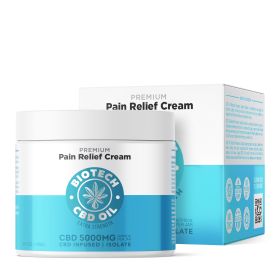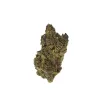Although many people use cannabinoids, including marijuana for their widely documented wellness benefits, there are some known risks. Those who use them in excess or with initial conditions that can interact with cannabis may be at risk for a cannabinoid overdose if they don't proceed with caution. While cannabinoid or marijuana overdose can sometimes be blown out of proportion, the risks are real.
Now, the chances of overdosing on marijuana are rare. However, it is possible to experience adverse reactions if you consume too much of it. In rare cases, it may require you to be hospitalized. Still, cannabis is relatively safe when compared to other drugs. Marijuana overdoses can be detrimental, but they are usually less severe than those caused by opioids or other illegal drugs.
But is the same true for all cannabinoids, including delta 8, delta 10, HHC, and others?
Cannabinoid Overdose: Can You Overdose On THC?
There is no definitive definition of a marijuana or delta 9 overdose, as most doctors cannot agree on one. Although researchers have long discussed the pathophysiology and management of marijuana toxicity, it is unclear how much tetrahydrocannabinol or THC is required to cause an overdose.
A THC level of 7.5mg or more is considered toxic because it can cause severe side effects. In some cases, marijuana overdose can lead to psychosis and paranoia.
Symptoms and Side Effects: What Is The Risk Of Marijuana Overdose?
Marijuana is unique because it has many active ingredients, which are still under debate among the scientific community. Besides THC, marijuana contains over 100 other cannabinoids.
Smoking marijuana has caused heart arrhythmia and sudden cardiac arrest, which is very rare. The side effects usually depend on the type of cannabinoid used and the amount consumed.
The following are a few signs of THC toxicity:
- Heart arrhythmias, though doctors believe such incidents are under-reported. It should be noted that cannabis and alcohol both intensify this issue, and it is hard to tell if one triggered the problem.
- In sporadic cases, psychotic episodes are a sign of THC toxicity. However, this is debated in the scientific community. Many of these documented episodes have lasted longer than the time it takes for THC to metabolize.
- While THC has antiemetic effects, it can also cause uncontrolled vomiting.
Since marijuana often goes along with other drugs, it can be hard to determine which is responsible for adverse effects.
Delta 8 THC: What’s My Risk Of Overdose?
It should be noted that marijuana is not the only cannabinoid with a risk of overdose, however small it may be. Several new cannabinoids on the legal market now come with warnings from doctors and other authorities. Again, a debate continues in the scientific community, and much of the “warnings” that follow these cannabinoids come from the old “reefer madness” mentality.
But is there any truth to them? Can a person overdose on delta 8 THC? Well, first things first, when we think of the term overdose, it can mean anything from feeling a bit agitated to death, so the term itself is a bit overbearing. But, like with any substance, if taken in moderation, it should be fine. And to this day, there are no known deaths from hemp or cannabis.
That being said, the Food and Drug Administration recently issued a warning about delta 8 THC. “The FDA is aware of the growing concerns surrounding delta-8 THC products currently being sold online and in stores. These products have not been evaluated or approved by the FDA for safe use. Some concerns include variability in product formulations and labeling, other cannabinoid and terpene content, and variable delta-8 THC concentrations,” the FDA states in a warning posted online.
There have been no reported deaths from delta 8 THC, but there have been many adverse effects, or what would be classified as overdose, according to the FDA. Some statistics provided include:
- 77% were adults
- 8% were children patients under 18 years old
- 15% gave no age
- Over of the reported incidents required medical intervention
- 66% had an adverse effect from delta-8 edibles

What Are the Symptoms of Delta 8 Overdose?
Much like a marijuana overdose, a delta 8 overdose is subtle and may not be recognized immediately. However, according to recent reports by the FDA, a delta 8 THC overdose may include the following symptoms:
|
Delta 8 THC |
Symptoms* |
|---|---|
|
Overdose Symptom 1 |
hallucinations |
|
Overdose Symptom 2 |
vomiting |
|
Overdose Symptom 3 |
tremors |
|
Overdose Symptom 4 |
anxiety |
|
Overdose Symptom 5 |
dizziness |
|
Overdose Symptom 6 |
confusion |
|
Overdose Symptom 7 |
loss of consciousness |
*Food and Drug Administration
Can I Overdose On Other Cannabinoids?
What about other cannabinoids like CBD, delta 10, and HHC? Do they carry an overdose risk similar to marijuana? Let’s take a brief look.
Generally, professional organizations and even the World Health Organization agree that CBD does not have the potential to cause death. It is one of the safest compounds on the planet. However, minor side effects include drowsiness, lethargy, nausea, diarrhea, and other undesirable feelings that can occur when taken in excess.
As for other, more potent cannabinoids such as delta 10, HHC, THCP, and others, while there has been a surge of interest since these products have become (semi-)legal, the research has yet to catch up. No comprehensive studies examine delta 10's safety profile or overdose records.
Here's what we do know. These products come from hemp, and hemp is safe. Still, most of the information we have is anecdotal.
The safety profile of all of these cannabinoids seems to mimic THC, which is good. Side effects are comparable too. Those side effects include (though they vary somewhat depending on the cannabinoid):
- Feelings of anxiety
- Feeling dizzy
- Mouth feeling dry
- Appetite stimulation
- Anxiety and insomnia
- Feelings of paranoia
- A rapid heart rate
- Red eyes
Marijuana Overdose: What Are My Chances Of Dying?
In some isolated cases, marijuana has been implicated as the cause of death caused by an overdose of the drug. Some people wonder if a marijuana overdose can result in the death of the user.
In the case of those cases, it is unclear whether any other factors (such as preexisting cardiac conditions) had any impact on those cases. Neither a causal relationship nor a clear cause has been found.
The National Academies of Sciences, Engineering, and Medicine published an in-depth examination of the health risks associated with cannabis a few years ago. According to their research, there have been several cases in which children have stopped breathing and gone into comas when accidentally consuming marijuana. They also note at least one teenager died as a result of the consumption of an edible.
According to their findings, three factors have increased the chances of a teenager dying from a marijuana overdose.
- Cannabis/marijuana is becoming more widely available and accessible to a broader audience.
- In recent years, there has been an increase in the types of cannabis products that are available for consumption.
- Since the beginning of the 21st century, there has been a general increase in THC in marijuana/cannabis.

Cannabinoid Overdose: Experimenting With Edibles
Edibles are one of the most popular ways to consume THC products today. But one might unknowingly consume too many THC gummies because it takes a while to feel its effects. Edible THC is metabolized differently than THC that is inhaled. Edibles always come up slow and take a bit to hit your bloodstream.
For example, people are flocking to buy delta 8 gummies because hemp-derived THC products are getting more popular thanks to the 2018 Farm Bill that legalized hemp and all its derivatives.
But as gummies take a while to kick in, sometimes up to an hour, first-time customers may come back for seconds, and sometimes even thirds, before the first round of edibles has even taken effect.
Due to its immediate psychoactive effects, smoking marijuana rarely leads to accidental overdoses. On the other hand, edibles require a bit more patience, so overdosing is more likely. New consumers need to be told explicitly how to use these delicious treats. Furthermore, edibles don't look perceptibly marijuana-infused, so one may not realize that candy or a brownie is infused with THC until one consumes it. This is why there have been so many issues with children accidentally overdosing.
Children, Cannabis, and Accidental Overdose
Considering edibles containing THC look like regular candy that kids might want to try, kids are more tempted to consume them. Throw that many of these products have attractive packaging to children — bright colors, cartoon characters, etc. — and it can be not very clear.
Kids like to eat candy in bulk. They aren't aware that edibles are meant to be consumed in small doses (such as 1/4 gummy), and because they're small, they're more prone to overconsumption.
If your child has overdosed on marijuana, call 911 or seek emergency medical attention right away. One of the issues with prohibition is that it keeps people, including parents, away from the emergency room for fear of legal consequences.
But as more states legalize, this becomes less of a concern. Medical marijuana was legalized in California in 1996, while recreational marijuana was legalized in Oregon in 1997. Since recreational marijuana has gained momentum across the country as it has gained popularity, medical professionals have been shocked by the marked increase in marijuana consumption in states that have legalized it. All of this new consumption has resulted in a significant increase in emergency department visits.

THC Stays In My System For How Long?
Marijuana can be detected in urine for 30 days or longer after you stop using it, depending on how much and how often you use it. You can have marijuana in your urine for 72 hours if you use it once (and don't use it often).
Why You Feel High and What You Can Do About It
We all want to feel high, as the euphoria and happiness are extraordinary. Feeling relaxed and chill is what it's all about. But what do you do when you're feeling too high? Check out these tips:
- You can self-soothe after using marijuana by relaxing, drinking lots of water, eating, and exercising.
- Keeping cool can be challenging when you're high on marijuana, so take deep breaths, watch a soothing video, or listen to relaxing music.
- Always drinks lots of water, mainly to prevent dry mouth due to marijuana. Some people swear by carb-heavy and nutrient-dense foods to reduce marijuana highs.
- Before trying anything, please speak to your doctor or start with a low dose of CBD until you get a feel for it. Some research supports using cannabidiol (CBD) as a relaxation ingredient and reducing THC's psychoactive effects.
Dealing With THC Intoxication
If you show dehydration and have been hospitalized for marijuana intoxication, you may be kept in the hospital overnight for observation. Depending on your condition, you may also be given intravenous fluids through an IV.
Benzodiazepines or antipsychotics may be prescribed if you have anxiety or a psychotic disorder.
The doctor can treat you with IV fluids, vomiting medication, and proton pump inhibitors if you suffer from cannabinoid hyperemesis syndrome. This occurs in people who continuously use marijuana and cause repeated vomiting. You should be able to recover from cannabinoid hyperemesis syndrome within 24 to 48 hours of stopping the use of cannabis.
You may need to attend an inpatient or outpatient rehabilitation program if marijuana intoxication is related to cannabis use disorder. Through group therapy and education, you will learn how to cope with stress without resorting to alcohol or drugs as part of rehabilitation programs.
Marijuana & Other Cannabinoid Overdose: Final Thoughts
In most cases, you should not have any problem taking too much cannabis. An overdose is unlikely to have a severe impact on your life. If you overdose, you will have to wait for the effects to wear off. As noted previously, self-care techniques can help. Moderation is vital when doing anything, especially with cannabis.
Experts recommend starting with smaller doses. Try around 1 to 2.5mg for edibles and gummies (for all cannabinoids) and one or two puffs for smoked or vaped products.
It is important to keep an eye on what you are consuming in terms of THC to help avoid an overdose. Most importantly, stay calm and always have someone with you when you use cannabis.

